The role of North Africa in the geopolitical relations between Europe and Africa. Focus on the migration and mobility dimension
Being at the gate of Europe yet deeply rooted in Africa has given to Northern African countries the role of bridging the two continents. Driven by the law of labour demand and supply in the aftermath of World War II, northern African citizens happened to be among the first Africans to explore voluntary mobility towards Europe. Hence, an international migration culture was born in this part of Africa, before Sub-Saharan citizens followed the same path years later. Therefore, Europe has come to communicate more easily with northern African neighbors, as opposed to the limited/blurry vision on Sub-Saharan African countries. The recent dramatic developments surrounding the migration issue along with the challenges imposed by the current world transformation makes it urgent to have a clear vision on the issue of migration and mobility. An inclusive discussion that would involve Africa in its integrality- (North and Sub-Saharan Africa)- and Europe. In this regard, ambitious northern African countries can offer valuable help in making the divergent visions come closer.
The purpose of the joint panel between the Policy Center for the New South and the Konrad Adenauer Stiftung is to shed the light on the role that can be played by Northern African countries in bridging the gap between Europe and Sub-Saharan Africa on the question of migration.
- Beyond the Neighbors, engaging with the neighbors of the neighbors: is the cooperation level between Europe and Africa sufficient? How can northern African countries bridge the existing gap? A close look at the Moroccan leadership on the matter of migration at the African level.
- Understanding the constant and the variable in the relationship between Africa and Europe. Northern African countries are no more merely senders of migrants. They are also receiving an increasingly important number of migrants from Sub-Saharan Africa. How to manage the constant aspect of northern African migration towards Europe and include in addition, the more recent sub-Saharan mobility in the equation. What lessons are to be learned from over sixty years of presence of African migrants in Europe?
- What are the geopolitical perspectives ahead of the EU-Africa Summit?How does the migration issue articulate with other cooperation and partnership dynamics of the European Union with North Africa (European Neighbourhood Policy, Euro-Mediterranean Partnership) and Sub-Saharan Africa (new EU Comprehensive Strategy with Africa)?
| Agenda | |
|---|---|
|
15:00-15:10 |
Welcoming Remark Bouchra Rahmouni, Director of Research, Partnerships & Event, Policy Center for the New South |
|
15:10-15:15 |
Presentation of the Panel |
|
15:15-15:25 |
North Africa: A Hub for Migration |
|
15:25-15:35 |
Bridging the Gap: An Emerging African Strategy on Migration Amal El Ouassif, International Relations Specialist, Policy Center for the New South |
|
15:35-15:45 |
Migration Mobility Partnerships of the European Union |
|
15:45-15:55 |
What Prospects and Implications for Europe-North Africa Partnerships? What Role for Migration in the Partnerships? |
|
15:55-16:10 |
Commentary |
|
16:10-16:30 |
Q&A |
Keep me informed
-
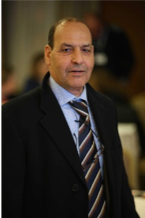
Hassen Boubakri, President, Tunis Center for Migration and Asylum
Prof. Dr. Hassen Boubakri is the President of the Tunis Center for Migration and Asylum, a national partner of the North Africa Migration Academic Network and a steering committee member of the Mapping European Mediterranean Migration Jean-Monnet-Network. As a Professor-Doctor of Geography and Migration Studies he is a Senior Lecturer at the University of Sousse and on their behalf the partner of the Maghreb Action on Displacement and Rights (MADAR) Network. Most recently, Prof. Boubakri has been the team leader of the study “Update of the National Migration Strategy” launched by the National Migration Observatory in Tunisia. With experiences at numerous international organizations, such as the United Nations, the European Commission, ICMPD or the Migration Policy Center, and as an advisor to different ministries and decision-makers, Prof. Boubakri is a leading migration expert in Tunisia.
-

Amal El Ouassif, International Relations Specialist, Policy Center for the New South
-
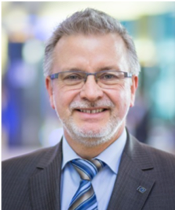
Michael Gahler, Member of the European Parliament; Vice-Chair of ACP-EU Joint Parliamentary Assembly, Member of Committee on Foreign Affairs
Michael Gahler is a Member of the European Parliament for the German Christian Democratic Union (CDU), which is part of the European People's Party (EPP). Mr Gahler is the foreign policy spokesman of the EPP, the Vice-Chairman of the Delegation to the ACP-EU Joint Parliamentary Assembly, member of the Committee on Foreign Affairs and the Subcommittee on Security and Defence.
As a Member of the European Parliament since 1999, Mr Gahler also serves as a member of the EPP Executive Committee and a member of the Board of the CDU/CSU Group in the European Parliament. Mr Gahler is also a member of the CDU Federal Committee on Foreign, European and Security Policy and, since 2010, Deputy Chairman of the European Movement Germany.
-

Mohamed Limam, Assistant Professor, University of Sousse
Dr. Mohamed Limam is Assistant Professor in Political Science. He obtained a postdoctoral diploma, "Habilitation of Supervising Research (HDR) from the University Al Manar, Tunis. His main areas of interests and expertise are Tunisian politics and EU/MENA region cooperation, namely the EU migration policy toward the Maghreb countries. He was a research associate at the Robert Schuman Centre for Advanced Studies in the European University Institute – Florence (2012- 2014 and 2016-2017). Dr. Limam is also the country reviewer of the Bertelsmann Transformation Index report (Tunisia, since 2012), the Country reporter of Transparency International report on Tunisia (2018) and of the Arab Civil-Military Relations Index (civil-military relations in Tunisia), Carnegie Middle East Center (2020).
His recent publications include (with R. A. Del Sarto) « Contesting Europe’s Policies of Migration Control: The Case of Morocco and Tunisia » (University of Michigan Press, 2020). He is the editor of two books: « Les Politiques migratoires de l’UE et de la Tunisie : Regards croisés au prisme des droits des migrants » (2019) and « La gestion de la question migratoire en Tunisie: Enjeux et défis » (2020).
-
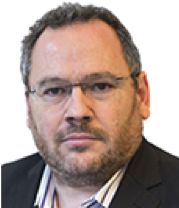
Iván Martín, Senior Fellow, Policy Center for the New South
-
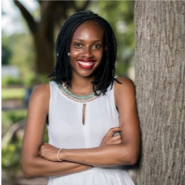
Silindile Nanzile Mlilo, PHD Research Fellow & Xenowatch Project Manager, African Centre for Migration and Society, University of Witwatersrand
Silindile is a PhD candidate for a Doctor of Philosophy in Migration and Displacement at the African Centre for Migration & Society (ACMS), University of Witwatersrand. She has earned a Bachelor of Social Work, and an MA in Human Rights from the University of Fort Hare in South Africa, respectively. Her MA thesis was a qualitative study focusing on the welfare support for migrant youth in Paris suburbs, particularly how their needs and views are ignored in ‘culture-blind’ policies in France. She has been involved in several voluntary positions where she has offered her research skills on refugee issues and engaged in community development projects aimed at empowering youth and children from underprivileged backgrounds.
Her current research interests include exploring the concepts of integration, identity, ethnicity and the meaning of citizenship in the context of migrants/refugees in the Global South and how these translate to their everyday lived experiences.
-

Bouchra Rahmouni, Director of Research, Partnerships & Event, Policy Center for the New South
-
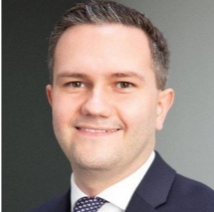
Thomas Volk, Director of the Regional Program Political Dialogue in the South Mediterranean of the Konrad-Adenauer-Stiftung (KAS)
Thomas Volk is since July 2020 the Director of the Regional Program Political Dialogue in the South Mediterranean of the Konrad-Adenauer-Stiftung (KAS), based in Tunis. Before he was since December 2016 the Resident Representative of KAS for Senegal and The Gambia, based in Dakar. Starting in 2014 he was the Coordinator for Islam and the Dialogue between Religions in the Department for Politics and Consulting in the Headquarters of KAS in Berlin. He studied Middle Eastern Studies and History in Freiburg and Basel and graduated from the German-Turkish Master’s Program in Social Sciences at the Middle East Technical University Ankara and Humboldt-University Berlin. Before joining the KAS he worked for a member of the European Parliament and in the Headquarters of the Christian Democratic Union of Germany (CDU).









